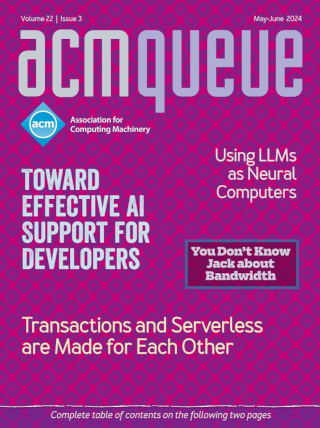
Echoes of Intelligence:
Textual interpretation and large language models
We are now in the presence of a new medium disguised as good old text, but that text has been generated by an LLM, without authorial intention—an aspect that, if known beforehand, completely changes the expectations and response a human should have from a piece of text. Should our interpretation capabilities be engaged? If yes, under what conditions? The rules of the language game should be spelled out; they should not be passed over in silence.
Managing Hybrid Teams:
The combination of on-site and remote workers takes extra effort from team leaders.
After three years of working remotely, many companies are asking their people to return to the office. Not everyone is coming back, however. With some people in the office and some still working from home, leaders must get this transition to hybrid work right. Hybrid is the worst of both worlds in some ways. You can easily end up creating two experiences?one for the people in the office and one for the remote workers?which can lead to problems that will compound over time and have long-term damaging effects on your team. For leaders who are navigating a newly hybridized work environment, this column presents the following recommendations to help make sure your team is as functional as possible.
Security Mismatch:
Security must be a business enabler, not a hinderer.
Information security teams that say 'no' need to change. Hiding behind a moat makes repelling attacks easy, but bridges allow you to replenish supplies and foster relationships with customers? castles. Remember, a security team's role is to empower their business to move forward with confidence, not to hinder progress.
Don't "Think of the Internet!":
No human right is absolute.
I cannot help but notice few women subscribe to absolutist views of electronic privacy and anonymity. Can it be that only people who play life on the easiest setting find unrestricted privacy and anonymity a great idea?
Pointers in Far Memory:
A rethink of how data and computations should be organized
Effectively exploiting emerging far-memory technology requires consideration of operating on richly connected data outside the context of the parent process. Operating-system technology in development offers help by exposing abstractions such as memory objects and globally invariant pointers that can be traversed by devices and newly instantiated compute. Such ideas will allow applications running on future heterogeneous distributed systems with disaggregated memory nodes to exploit near-memory processing for higher performance and to independently scale their memory and compute resources for lower cost.
Stone Knives and Bear Skins
If you look at the software tooling landscape, you see that the majority of developers work with either open-source tools; or tools from the recently reformed home of proprietary software, Microsoft, which has figured out that its Visual Studio Code system is a good way to sucker people into working with its platforms; or finally Apple, whose tools are meant only for its platform. In specialized markets, such as deeply embedded, military, and aerospace, there are proprietary tools that are often far worse than their open-source cousins, because the market for such tools is small but lucrative.
How Flexible is CXL's Memory Protection?:
Replacing a sledgehammer with a scalpel
CXL, a new interconnect standard for cache-coherent memory sharing, is becoming a reality - but its security leaves something to be desired. Decentralized capabilities are flexible and resilient against malicious actors, and should be considered while CXL is under active development.





